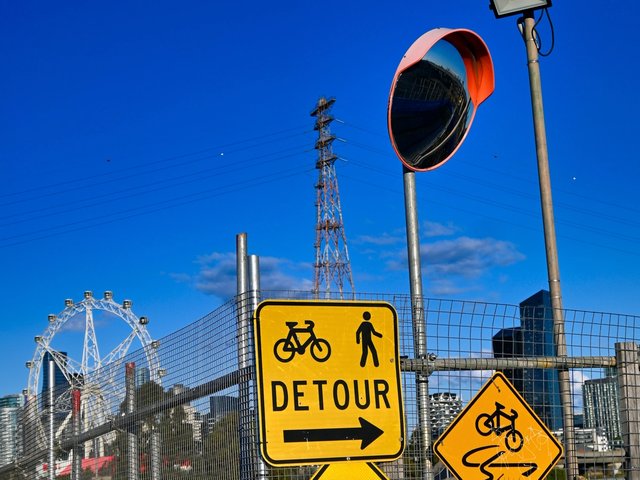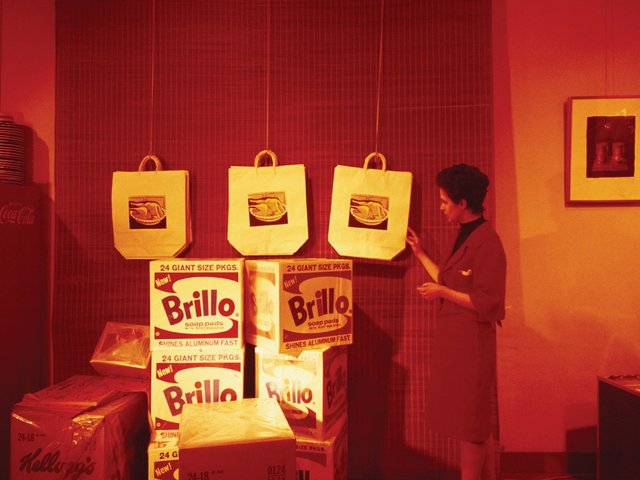One of the all-time great Instagram posts is Sean Scully's stark declaration, made on 25 November 2019, in all caps and a bold, black, sans serif font on a plain white background, that he was "NO LONGER REPRESENTED BY BLAIN/SOUTHERN GALLERY". Sometimes it takes an artist to know when less is more. At first the mind boggled, but rumours quickly circulated that Blain Southern was about to go under owing Scully £5m of proceeds of sales of works he had consigned to the gallery.
The scale of that particular episode was unusual, but sadly, it is an all too familiar story in the British art scene for a gallery to go out of business owing funds that rightfully belong to its artists. The recent closures of Simon Lee Gallery, Fold Gallery and Darren Flook gallery have all reportedly left artists out of pocket, giving some of them no alternative but to join hopeless queues to try and recover some small percentage of their funds along with (and, especially gallingly, often behind) HMRC, the banks and other creditors.
Many are now asking how this grim cycle can continually be allowed to repeat itself. Artist Tim Ellis recently posted a heartbreaking statement online saying that his experience with Fold Gallery had made him question whether he would continue making art at all.
Most primary-market sales of contemporary art take place within a consignment arrangement in which a gallery sells the works on the artist's behalf, acting as their agent. The gallery never becomes the legal owner of the works. Instead, in the event of a sale, legal title to the work passes directly from the artist to the collector, and the gallery handles the receipt of funds, which are passed on to the artist after the gallery has deducted its commission and any agreed expenses, such as for production costs.
In New York, California and other US states, the law is clear that galleries must hold proceeds of sales of consigned works due to artists on trust for those artists. This means the money is never the gallery’s to spend for its own purposes, nor is it exposed to any claim by the gallery's creditors if the worst happens and the business goes into bankruptcy. Under the especially stringent New York law, galleries are required to deposit the proceeds of sales of works of art on behalf of the artist directly into a segregated account. A gallery must never accept payment and deposit the proceeds in its own general account before forwarding the funds on to the artist; to do so is a criminal offence.
In the UK, we have no equivalent rules specific to the art market, and it is artists who suffer time and time again in the resulting grey area concerning how those funds are to be handled. Even if a gallery owner has carried on trading knowing that they are spending their artists' money and are likely to go bust, it would be incredibly difficult to persuade a British court that the activity had been sufficiently dishonest or fraudulent to justify “piercing the corporate veil”, enabling the artist to look beyond the insolvent company and go after the gallerist's personal assets for payment.
The moment has surely come for the British art market to move closer to the US’s position on this issue.
I should say in passing that it is my understanding that very few New York galleries actually abide by the strict requirements of these rules in practice. But the possibility of criminal sanctions nonetheless means that fewer gallerists are tempted to risk spending money that is not their own—a scourge also afflicting other areas of the art market, as illustrated by the recent lawsuits accusing the art adviser Lisa Schiff of spending funds she was holding on behalf of her collector clients.
I recognise that gallerists—most of whom are honourable—are often in a very tough position, particularly if they lack generational wealth as seed capital. The reality can be very complex when gallery funds are sunk into fabrication costs, and when shoestring operations struggle to keep all their plates spinning to make it month to month. I understand what I am proposing might make the operating conditions so difficult as to prevent some galleries from ever getting off the ground. But that risk is trumped by the fact that the artists' share of the sale proceeds is simply not the gallery's money, and clarity on that point would help save some gallerists from themselves.
Assuming that this issue will not go straight to the top of the next government's legislative agenda, what can artists do in the meantime? At the risk of sounding like a turkey farmer voting for Christmas, given my day job, all artists should insist on written consignment terms—no exceptions. Ideally these terms would state that sale proceeds (minus the gallery’s commission and any amount deductible for production costs) are money held on trust on the artist’s behalf. At a minimum, the terms should make clear that the works of art remain the artist's property until sold (meaning, until the buyer has paid in full), as well as define the payment terms in the event of a sale—30 days, say, to allow for the calculation of deductions and the expiry of any cancellation right a buyer who is a consumer (as opposed to a trader) might have. There should then be zero tolerance for late payment—no exceptions. Unless and until the law changes to protect artists' interests, they have no choice but to take matters into their own hands.
- Jon Sharples is an IP and art lawyer at Howard Kennedy LLP.





